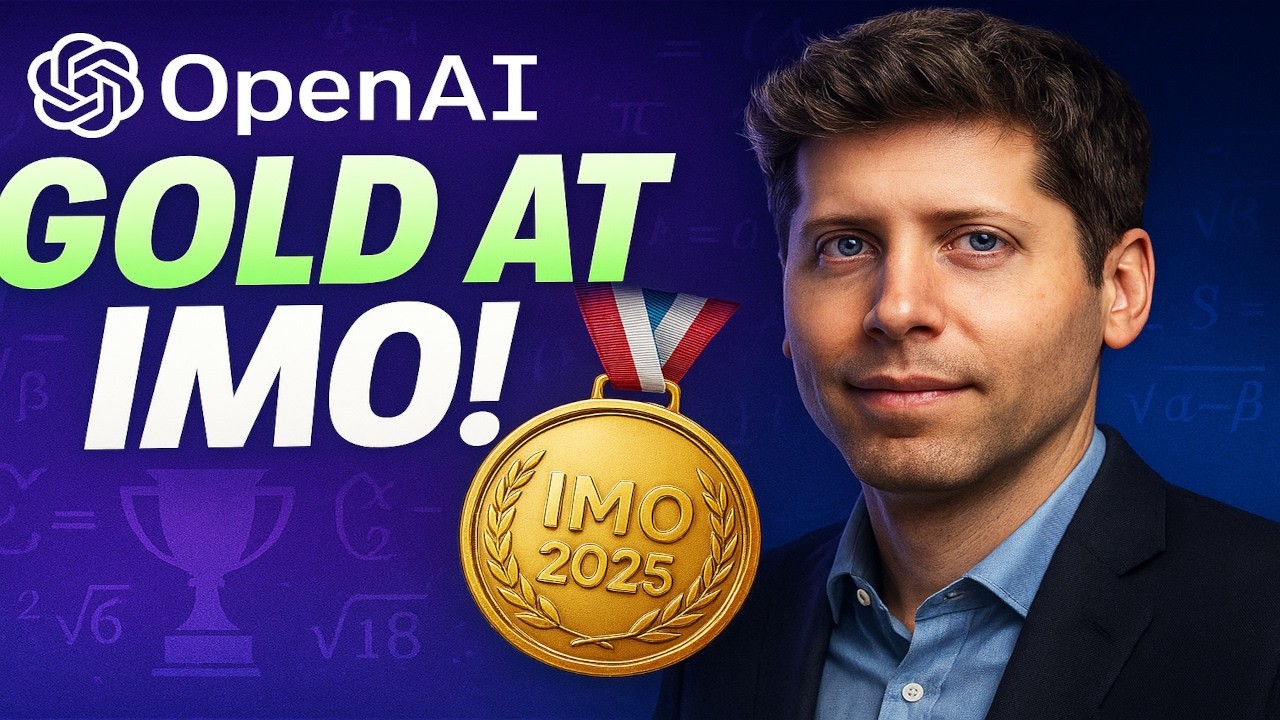OpenAI’s experimental reasoning model unexpectedly won a gold medal at the 2025 International Math Olympiad, showcasing rapid advancements in AI’s mathematical capabilities that surpass previous benchmarks and signal mastery over complex STEM domains. This breakthrough not only highlights AI’s transformative potential across various industries but also underscores urgent societal and economic shifts explored in the presenter’s work on post-labor economics.
The video discusses a groundbreaking achievement by OpenAI, whose internal experimental general-purpose reasoning model unexpectedly won a gold medal at the 2025 International Math Olympiad, the most prestigious math competition globally. This accomplishment is particularly remarkable because OpenAI was not specifically aiming to improve math capabilities; rather, the breakthrough came from advancements in inference-time scaling and reasoning algorithms. Just a few months prior, OpenAI’s models had not even ranked in the top 800, highlighting the rapid and significant progress made in a short time.
The presenter reflects on previous claims about AI “solving math,” noting that while earlier models saturated benchmarks like AIM 24 (which covers advanced high school math), the International Math Olympiad represents a much higher level of mathematical challenge. The rapid progression from saturating high school-level benchmarks to excelling at the Olympiad level indicates that OpenAI is close to mastering the entire domain of mathematics. This leap surprised many experts and prediction markets, which had initially assigned only a 20% chance to AI winning gold but quickly adjusted to over 85% after the announcement.
The video also explores the broader implications of this achievement. Mastery of math by AI is significant because math underpins all STEM fields—science, technology, engineering, and mathematics. With AI now capable of handling complex mathematical reasoning, it could accelerate discoveries in physics, engineering, and other scientific disciplines. The presenter emphasizes that AI’s improvement in math is akin to raising the baseline skill level, much like how AI-assisted coding has enabled novices to perform at expert levels quickly. This democratization of expertise could lead to widespread proliferation of advanced STEM capabilities.
Furthermore, the presenter situates this breakthrough within the context of general-purpose technologies, comparing AI’s evolution to the historical development of electricity. Such technologies take time to diffuse and find applications across industries, but once they do, their impact is pervasive and transformative. AI’s growing mathematical prowess will likely trigger network effects, making it an indispensable tool across education, healthcare, military, and beyond. The presenter highlights that this marks a new phase where AI is not just a tool for generating text or images but a foundational technology reshaping multiple domains.
Finally, the video concludes with a mention of the presenter’s ongoing work on post-labor economics, a framework exploring the societal and economic impacts of automation and AI. The recent AI breakthrough underscores the urgency and relevance of this work, as rapid advancements in general-purpose technologies like AI will accelerate shifts in labor, power structures, and economic models. The presenter invites viewers to engage with their blog posts and upcoming book to better understand these changes and contribute to the conversation about life after labor in an AI-driven world.
